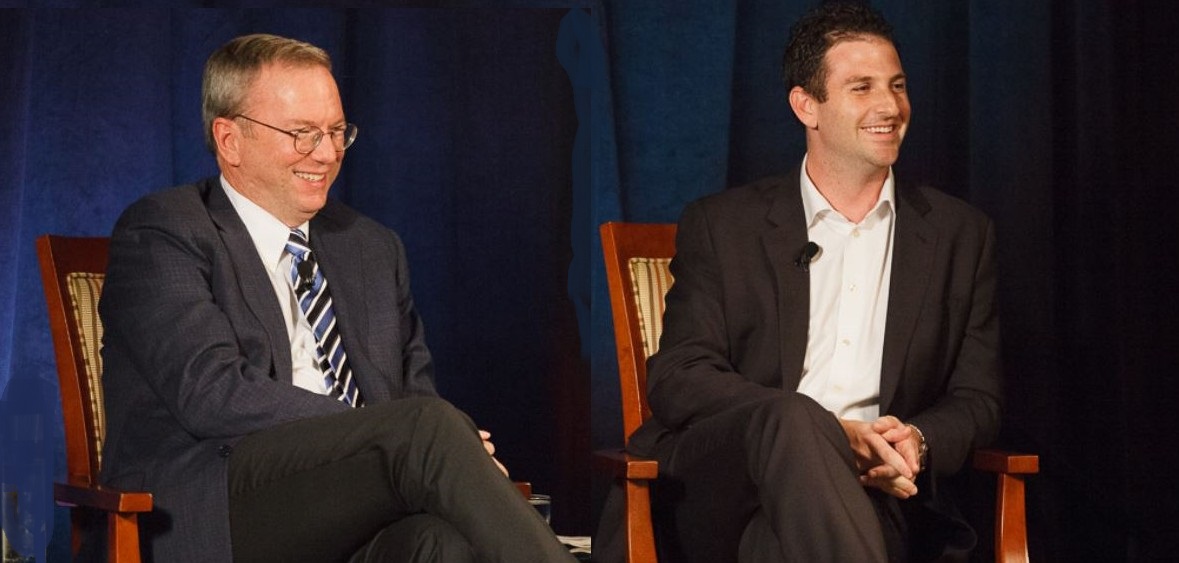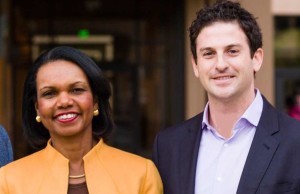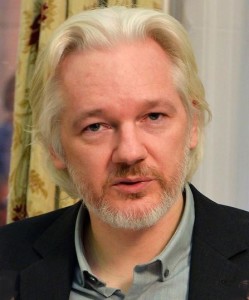
Analyst: Beware of Google bearing gifts
The intentions — more than the actions — of Google executives visiting Cuba are questioned in an article in the Cuban blog “La pupila insomne” [The Sleepless Eye] reproduced on March 13 in the official website Cubadebate.
As reported in Progreso Weekly, Scott Carpenter, director of Free Expressions/Google Ideas, Brett Perlmutter, also of that division, and other company specialists are in Havana, testing the waters for an eventual introduction of their products.
The Google executives visited the University of Computer Sciences (UCI) last week and exchanged ideas with a large number of students and professors, says the blog article, written by Iroel Sánchez. (For a recent article in Progreso Weekly that reports on that meeting, click here. For another PW article involving concerns about Google’s connections with the U.S. State Department, click here.)

“I learned that the visitors also visited the CUJAE (University City José Antonio Echeverría), as well as installations of the Joven Club,” Sánchez writes. The rest of his article follows, translated by Progreso Weekly.
****
“During the exchange of the Google executives at the UCI, it was learned that, despite the de-blocking of products like Google Play for Cuba announced late last year, there are still apps that are not available to the island, as well as services like Google Earth, Google Developers and Google Code, basic for the development of software, that remain inaccessible from Cuban IPs [Internet providers].
“There was also talk about whether Google would be ready, through Google Play, to sell video games for cell phones developed at the UCI, which the Google folks said was not possible at this time.
“UCI professors also proposed collaboration in video games for the rehabilitation of visual functions and a simulator to train doctors in the fight against Ebola, which could be better developed with the Google Glass tool, but they didn’t get a concrete answer from the visitors on that subject.
“However, there was a positive response to UCI’s invitation to a Google technician to give a lecture at an open event on software, next year at the university.
“A UCI professor asked [the visitors] how people could attend the scientific events sponsored by Google, but she didn’t get a firm answer, which contradicted the fact that the visitors praised the quality of the graduates from UCI and CUJAE and said they had hired several of them.

“Among the visitors is Brett Perlmutter, who accompanied Eric Schmidt, Google’s executive chairman, on his visit to Cuba last summer. All the others belong to the Google Ideas division directed by Jared Cohen, who was in Havana then but not now. The most relevant of the visitors now is Scott Carpenter, associate director of Google Ideas.
“Google Ideas identifies itself as an entity that ‘explores how technology can enable people to confront threats in the face of conflict, instability or repression.’ Cohen and Perlmutter engaged in that mission when, during their previous visit, went to a ‘newsroom’ that the U.S. bankrolls in a Havana apartment specifically to produce ‘conflicts, instability and repression.’
“On March 21, 2012, Google Ideas staged an event conducted by Jared Cohen at Washington’s ultraconservative Heritage Foundation, titled ‘Cuba Needs a (Technological) Revolution: How the Internet Can Thaw an Island Frozen in Time.’
“Participating in it were only notorious enemies of the Cuban Revolution, such as Florida senator Marco Rubio, former Under Secretary of State Roger Noriega, Radio-TV Martí director Carlos García Pérez, co-director of the Cuba Study Group Carlos Saladrigas, the executive director of the George W. Bush Institute, James Glassman, and Mauricio Claver-Carone, director of the U.S.-Cuba Democracy PAC [Political Action Committee].
“That conference was presided by Jared Cohen, who was an advisor to the U.S. State Department under Condoleezza Rice and Hillary Clinton. Julian Assange, leader of Wikileaks, has described Cohen as ‘Google’s director of regime change’ and ‘the State Department’s channel to Silicon Valley.’

“The following paragraph by Assange about the director of Google Ideas is quite illustrative of the close relationship between Google and the U.S. Government. The Australian hacker makes a very solid argument in an article titled ‘Google and the NSA: Who’s Holding the ‘Shit-bag’ Now?’
“‘WikiLeaks cables also reveal that Cohen, when previously working for the State Department, was in Afghanistan trying to convince the four major Afghan mobile phone companies to move their antennas onto U.S. military bases. In Lebanon, he covertly worked to establish, on behalf of the State Department, an anti-Hezbollah Shia think tank. And in London? He was offering Bollywood film executives funds to insert anti-extremist content into Bollywood films and promising to connect them to related networks in Hollywood.’
“Without knowing the entire gist of Google’s activities in Cuba, we cannot be clear on the objectives of this visit, but, judging from the exchanges at the UCI, where apparently there was more initiative from the Cuban side than the U.S. side, might we hope that this time Google brought new ideas during their visit to Cuba, not the same suggested to Jared Cohen by his illustrious guests at the Heritage Foundation, who are obsessed by the ‘revolution’ that Cuba needs?
“In any case, we can see the timeliness of the remarks by Cuba’s first vice president, Miguel Díaz-Canel, during the final session of the First National Workshop on Computer Information and Cybersecurity:
“‘Though some refuse to consider it, the blockade against Cuba has limited our access to financing, technology, systems, infrastructure, software and applications. President Obama’s acknowledgment of its failure and his announcement that investments should be made into the telecommunications sector so the Cuban people may have access to them is a recognition of this.
“‘The change of tactics — but not of objectives — in the United States Government’s policy toward Cuba accentuates the need for us to advance further in the Cuban process of information technology.'”
[Photo on top of Google executive chairman Eric Schmidt on the left and Jared Cohen.]


